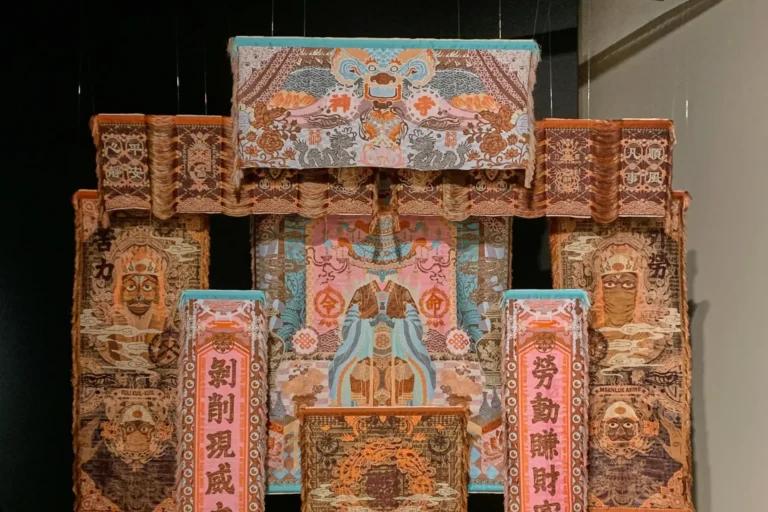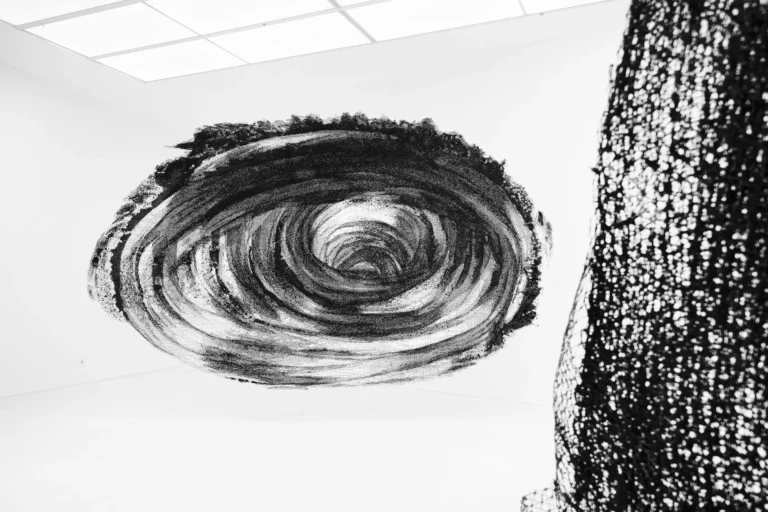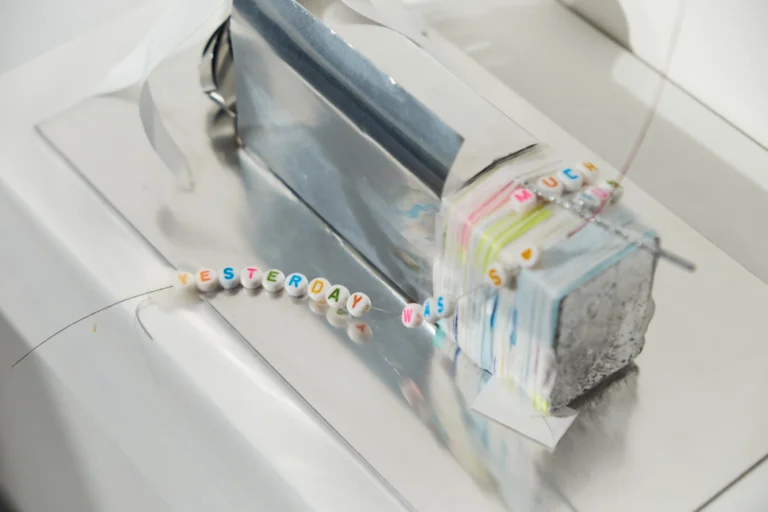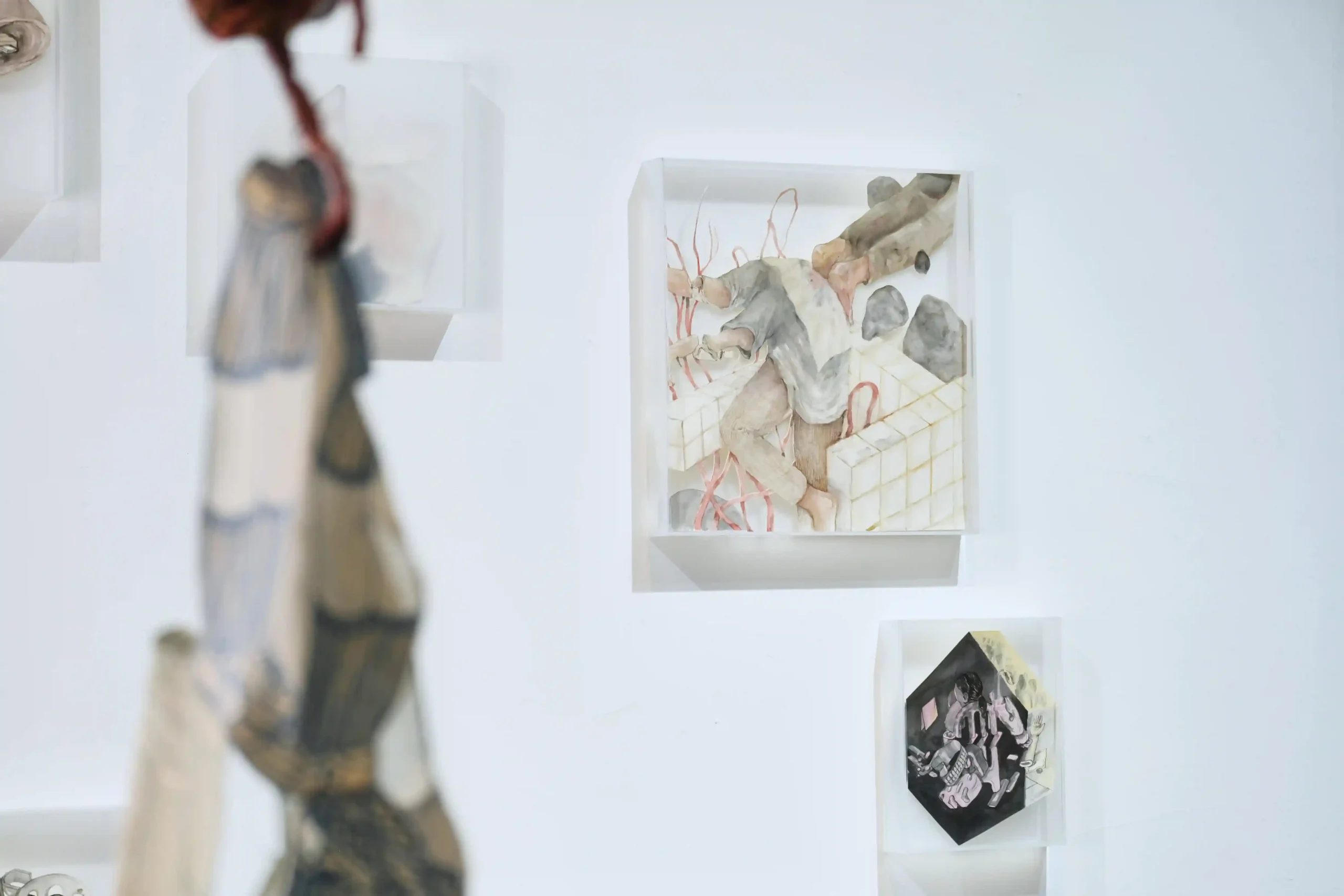
A head appears without a face, while other parts of the body dissolve into everyday objects like USB cables, hairs, pans, wood, fragments of walls, and plastic chairs. Restu Ratnaningtyas opens her solo show 24/7 Bodies at Langgeng Art Space as part of the Broken White Project by Ace House Collective and Equator Art Project. Through paintings, drawings, ceramics, and textile installations, the works draw on her own experience yet address a collective fatigue in a world that rarely pauses. This fatigue however is not hers alone, but something many of us might also share.
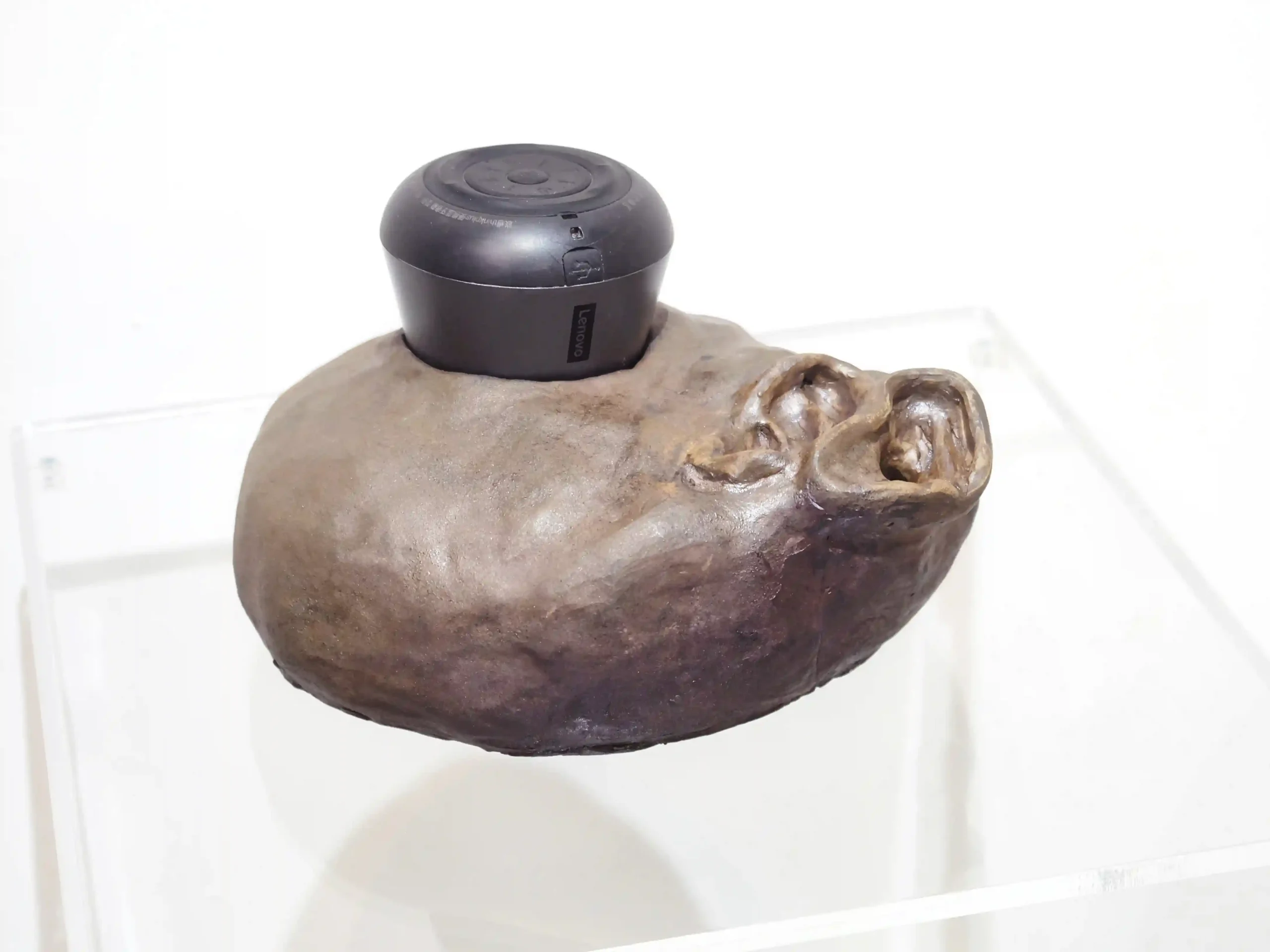
The exhibition’s title is drawn from Jonathan Crary’s book “24/7: Late Capitalism and the Ends of Sleep.” Crary writes about how capitalism strips away rest, communal rhythm, and even dreams. Restu addresses this condition by presenting bodies that no longer stand as autonomous beings because the logic of constant connection has already reshaped how we live and work.
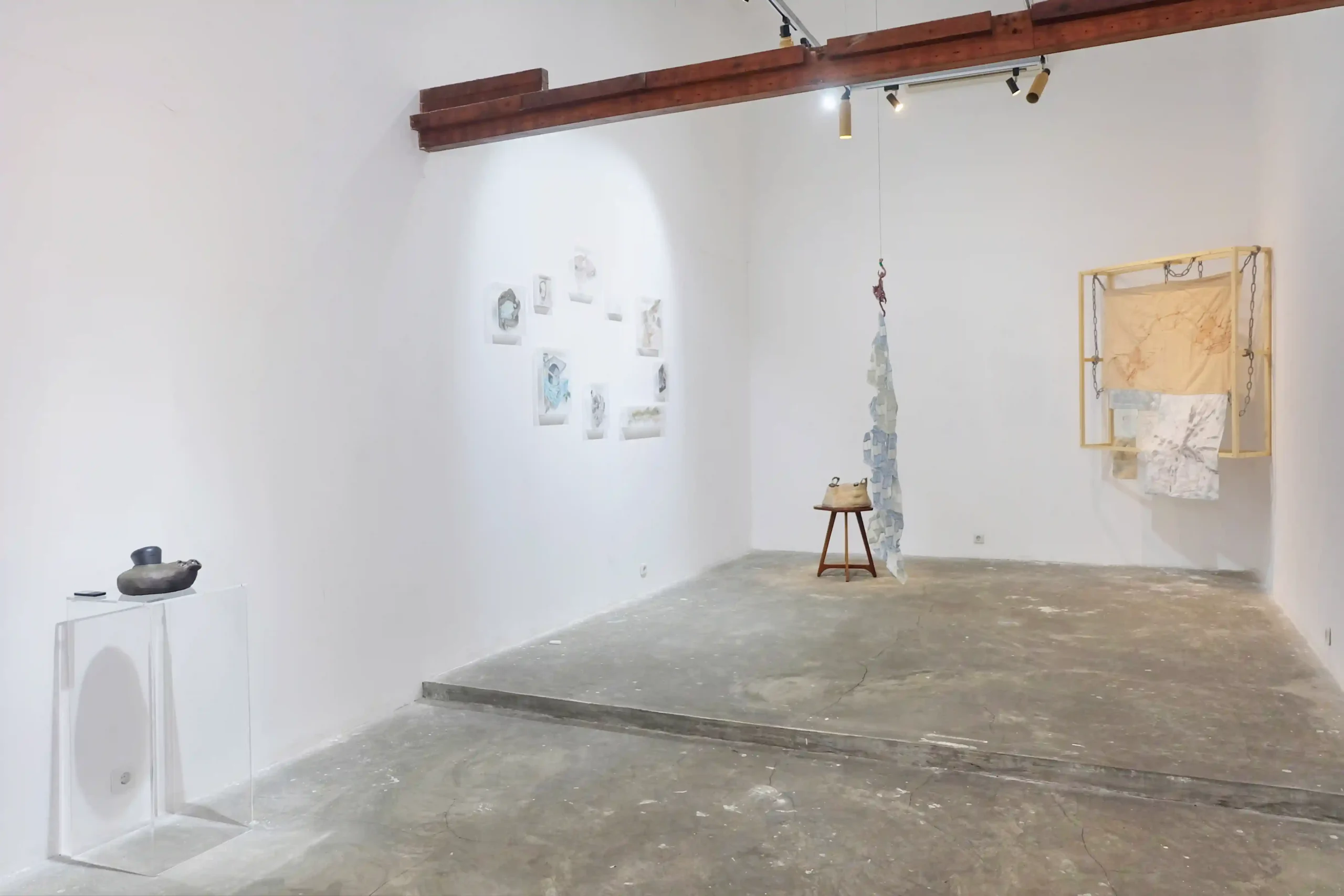
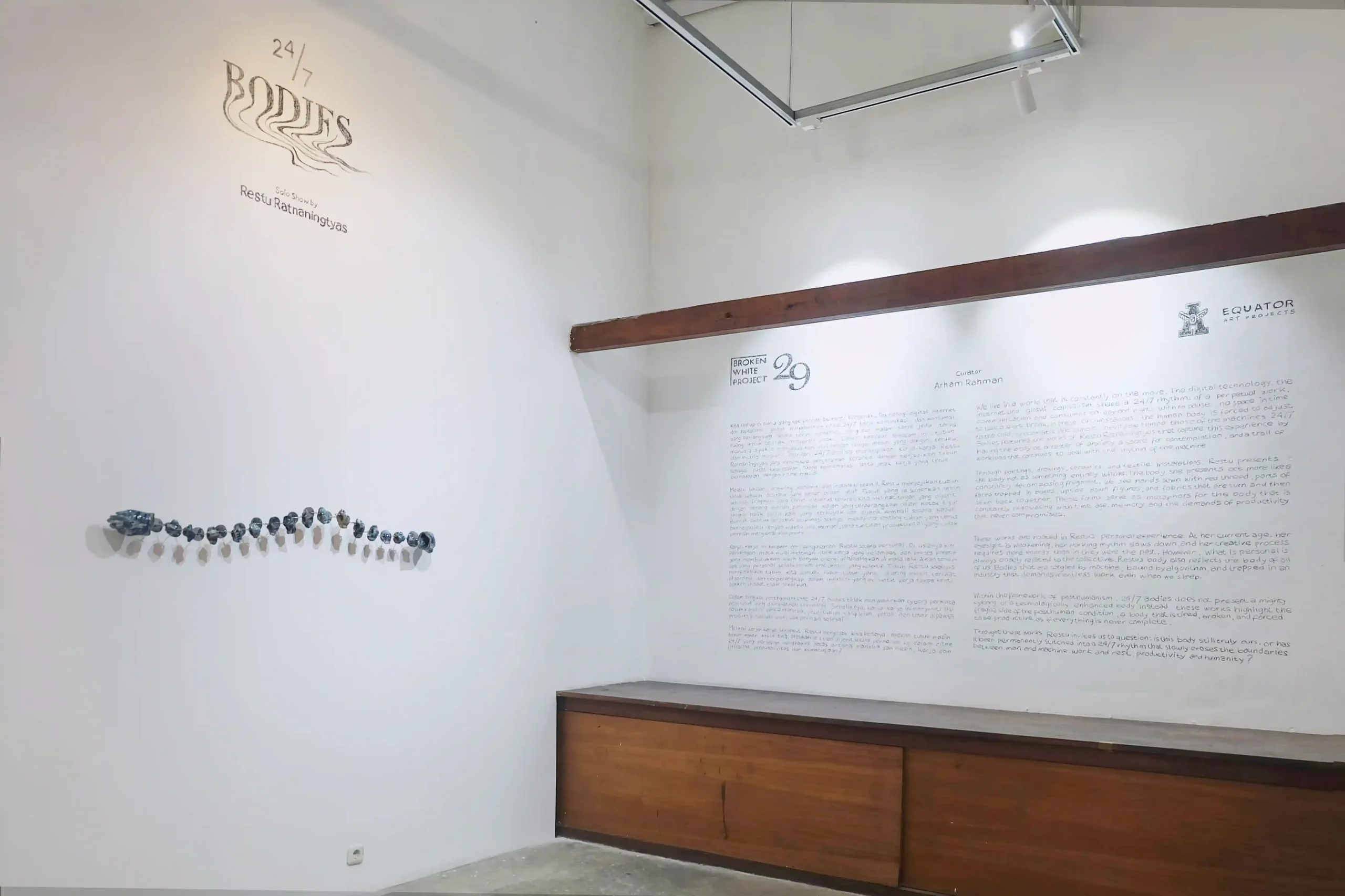
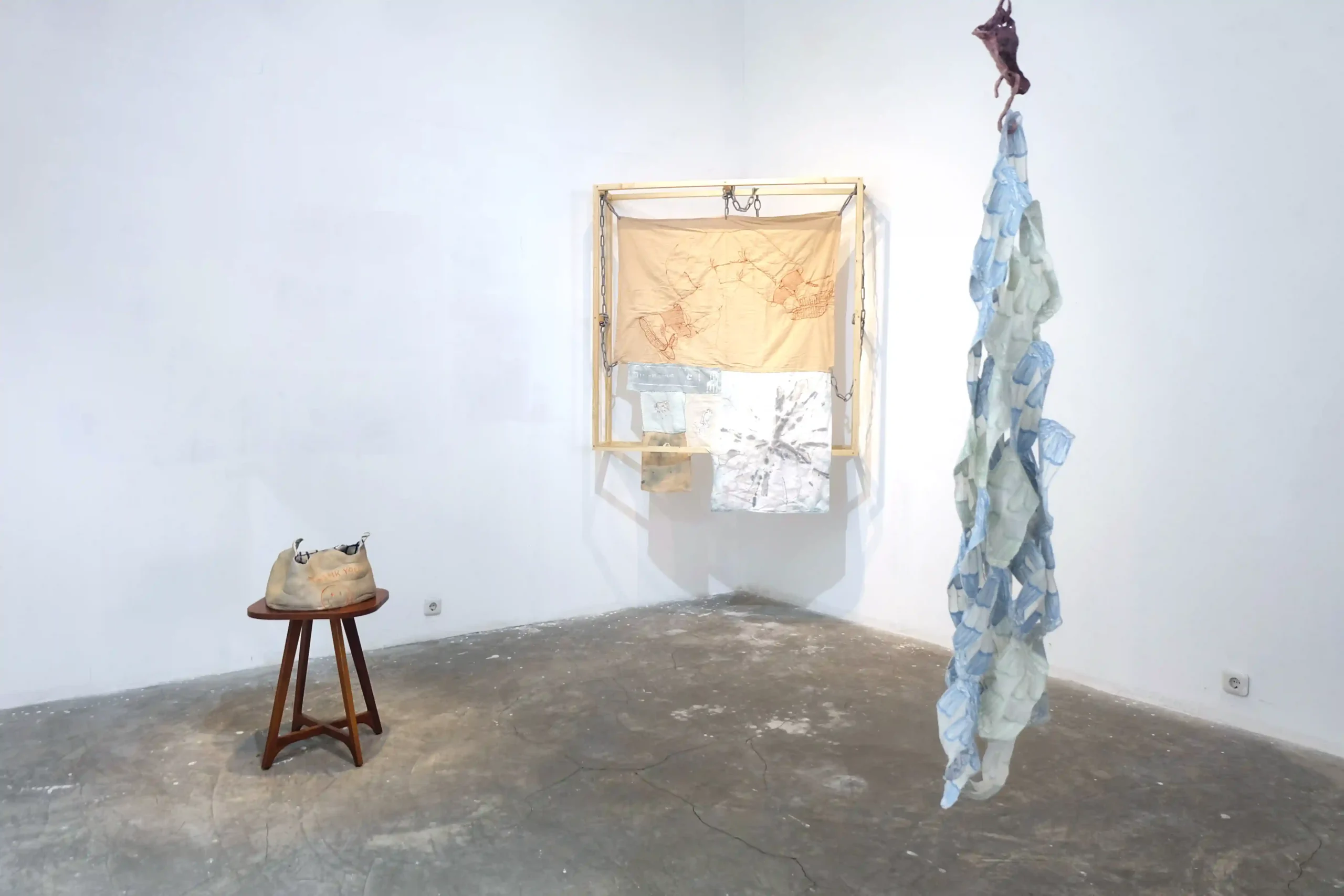
The idea of a body reshaped by constant connection appears clearly in the work Dehuman (2025). In this work, the body appears as fragments linked to digital symbols that are familiar in daily life. A medium-sized white cloth shows dark stains forming a shifting pattern, which the artist once compared to the old Winamp background on Windows computers. The effect recalls tie-dye or shibori techniques. On the left, four smaller panels display different colours and motifs. One carries the phrase “I’m not a robot” beside an image of a chair, recalling the reCAPTCHA icon that often interrupts our online routines. Here it works like a quilting point, holding the collage together and forcing us to see the body as conditioned by digital capitalism. The visual surface combines batik, embroidery, and light indigo tones, with animal figures and wall fragments stitched across the panels.
Her exploration continues in works that alternate between hand-sewn imperfection and computer precision. If Dehuman presents the body in the form of hand-sewn fabric fragments, marked by handprints and the residue of human fatigue, then Climbers (2025) offers a sharp contrast. Restu chose computer embroidery as a medium, a technology that produces precise and neat lines. The body fragments in this work lose their irregularity and turn into a sterile pattern, as if printed by a machine. In Climbers, embroidered legs repeat until individuality disappears which resembles data endlessly replicated in digital space.
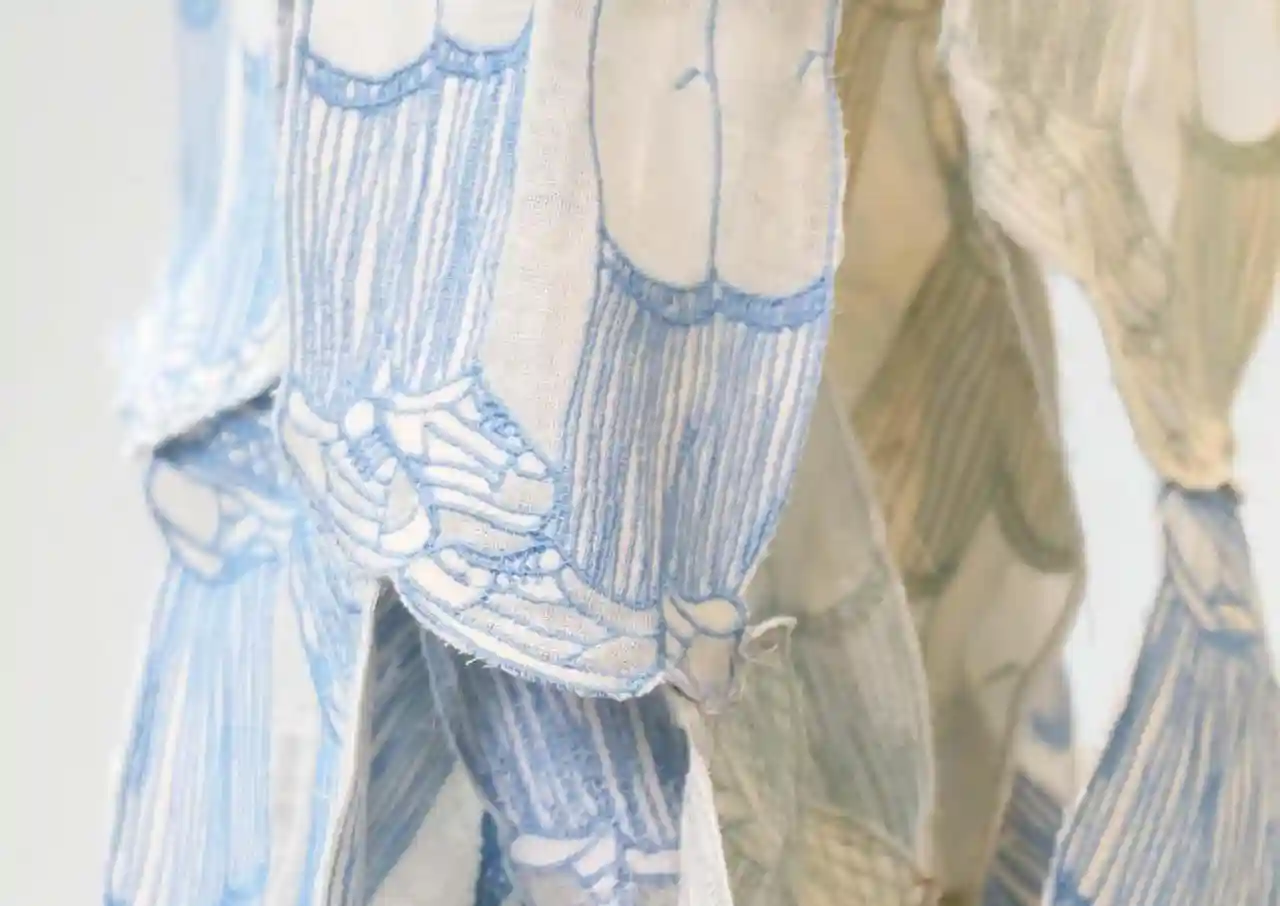
In Tiga (2025), the figures of a child and a mother show how absence and care work strain the body, since the missing role of a father places extra pressure on both. The work is painted in bluish-grey tones with thick brushstrokes that leave rough textures and layered shadows. The palette suggests a sterile, almost artificial space, as if the scene unfolds inside a laboratory. At the lower left, a faceless head rests above a grid, its erased features hinting at a child who has lost a centre of identity. The figure appears empty, caught within a mechanical frame that restricts growth and self-regard.
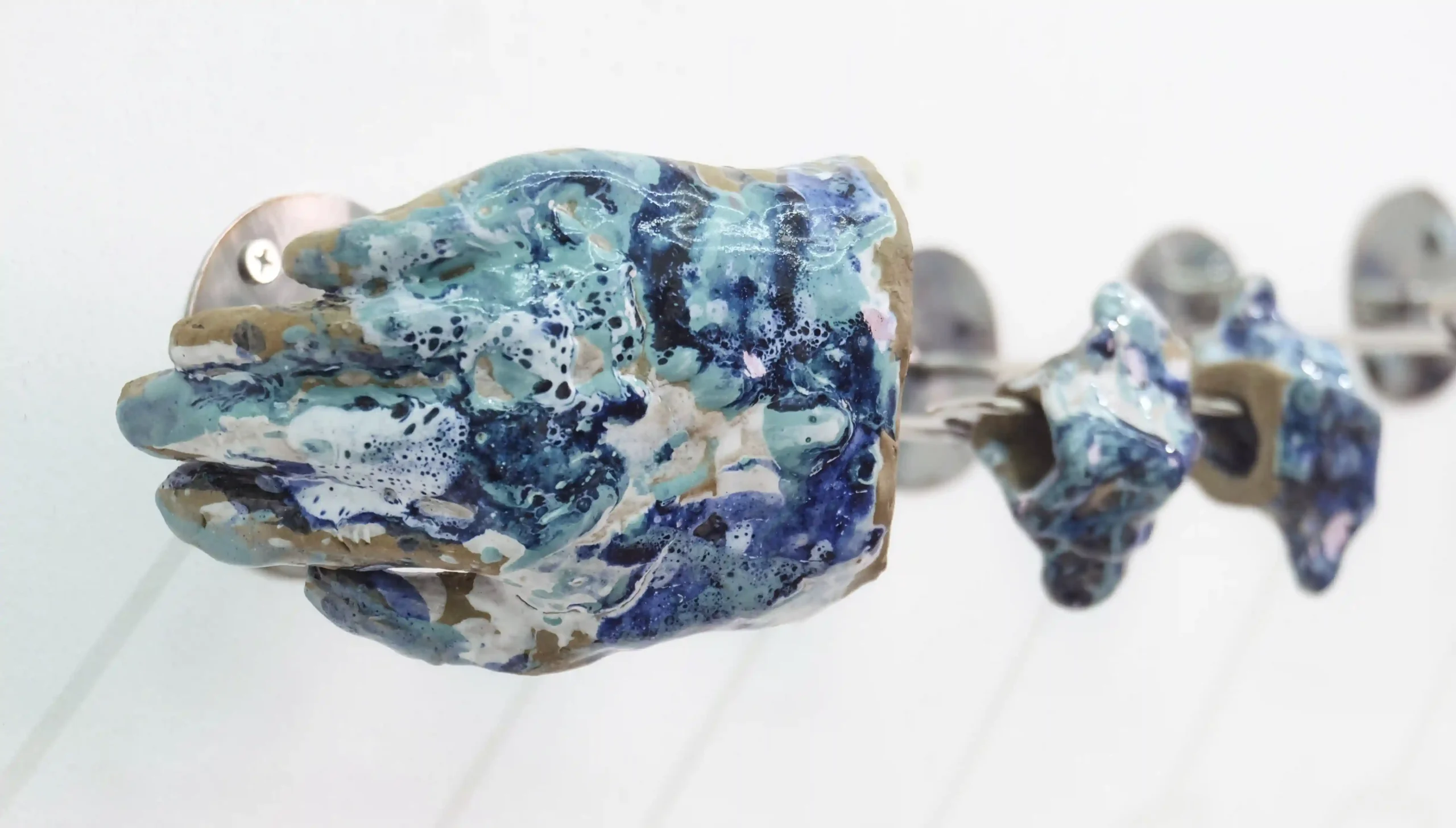
Other works in the exhibition continue this line of thought, approaching the body in relation to labour, technology, and care through different materials and gestures. Seen together, the works in 24/7 Bodies show a body that takes on different forms, at times stitched onto fabric, reproduced by machines, and elsewhere stretched by social roles. The exhibition also frames identity as something practiced and repeated, made visible through domestic elements and precise marks. From here, Restu turns the question back to us, whether the body is still our own, or whether it has already been sewn into the rhythm of 24/7 life that erases the boundary between human and machine, work and rest, productivity and humanity.
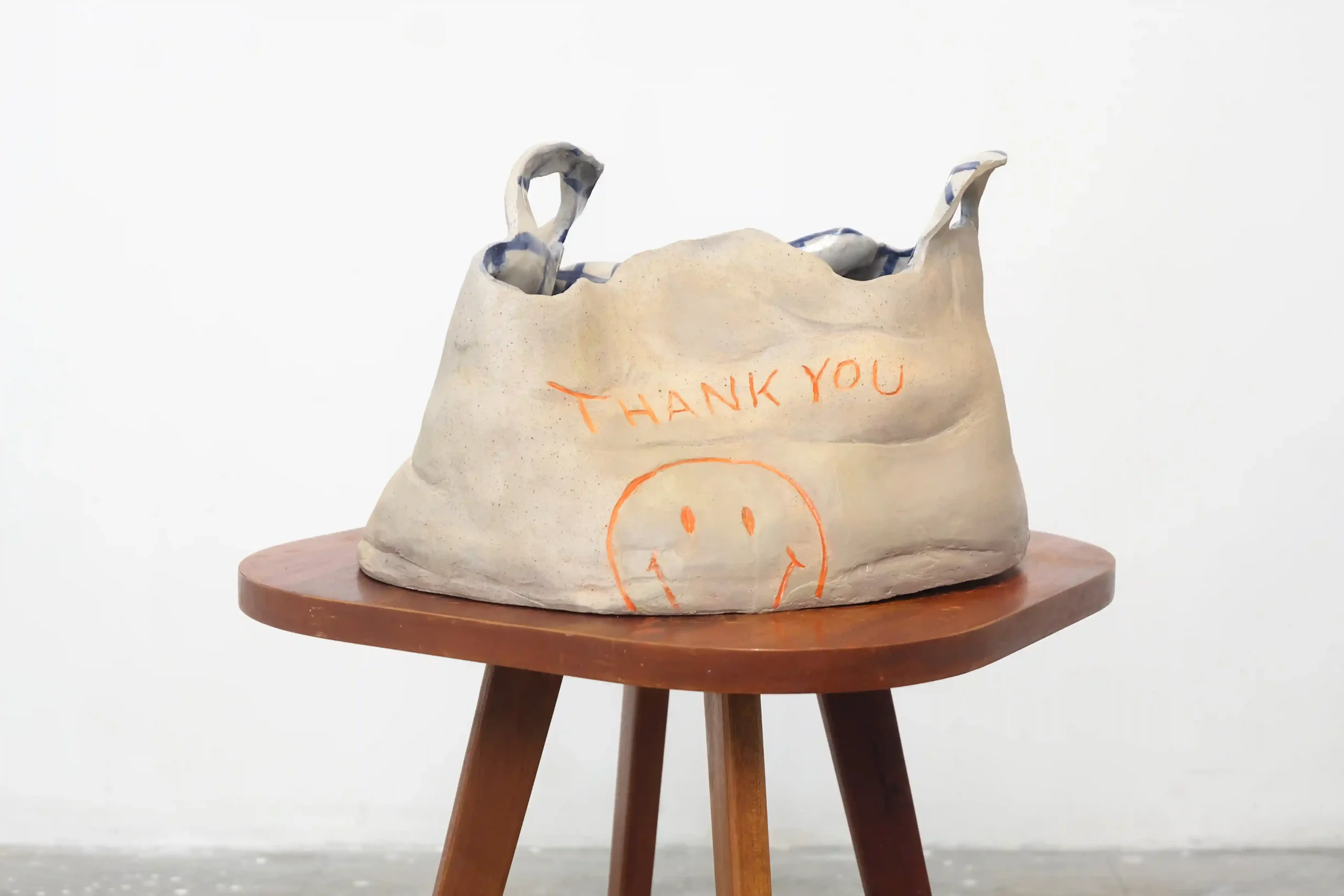
Identity appears not as something fixed but as something practiced and repeated, made visible through domestic elements and precise marks. From here, Restu turns the question back to us. Whether the body is still our own, or whether it has already been sewn into the rhythm of 24/7 life that erases the boundary between human and machine, between labour and rest, between productivity and life itself.
Ace House Collective | Equator Art Projects
Broken White Project #29: 24/7 Bodies
A Solo Exhibition by Restu Ratnaningtyas
12 September – 17 October 2025
Ace House — Langgeng Art Space,
Jl. Suryodiningratan No. 37,
Yogyakarta 55141, Indonesia


